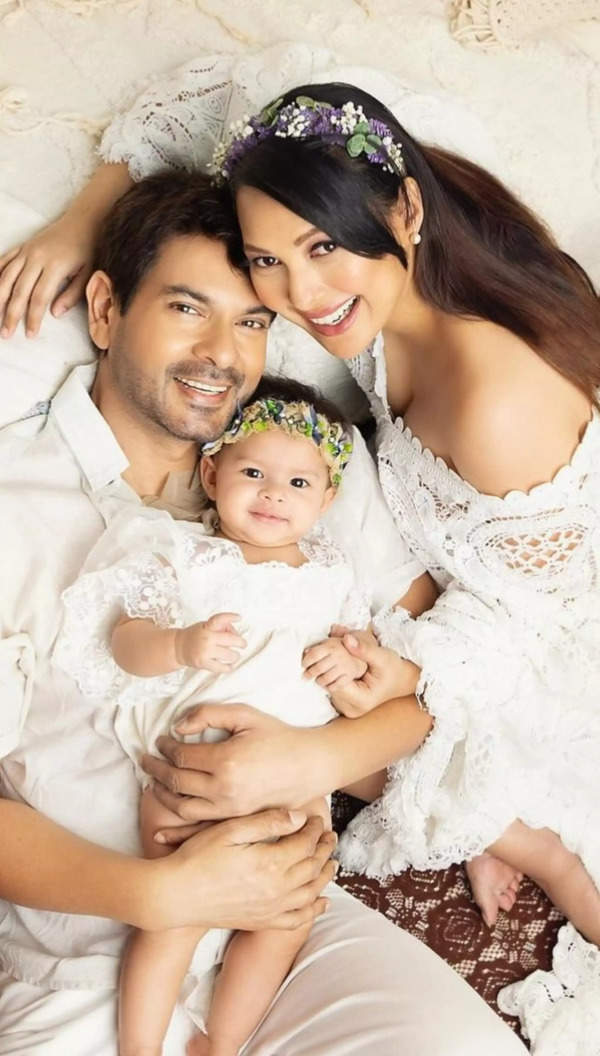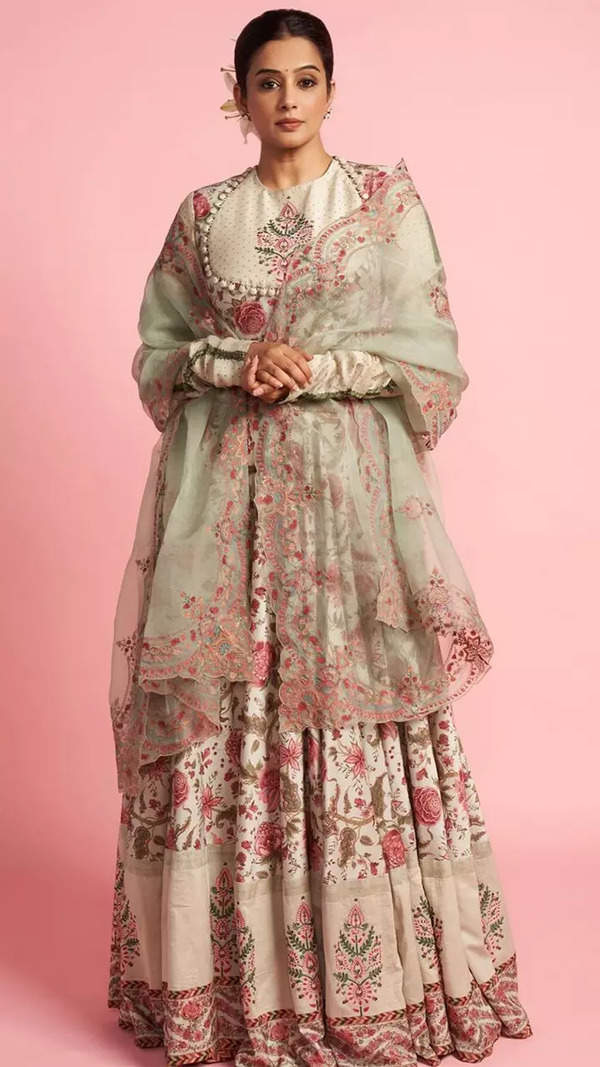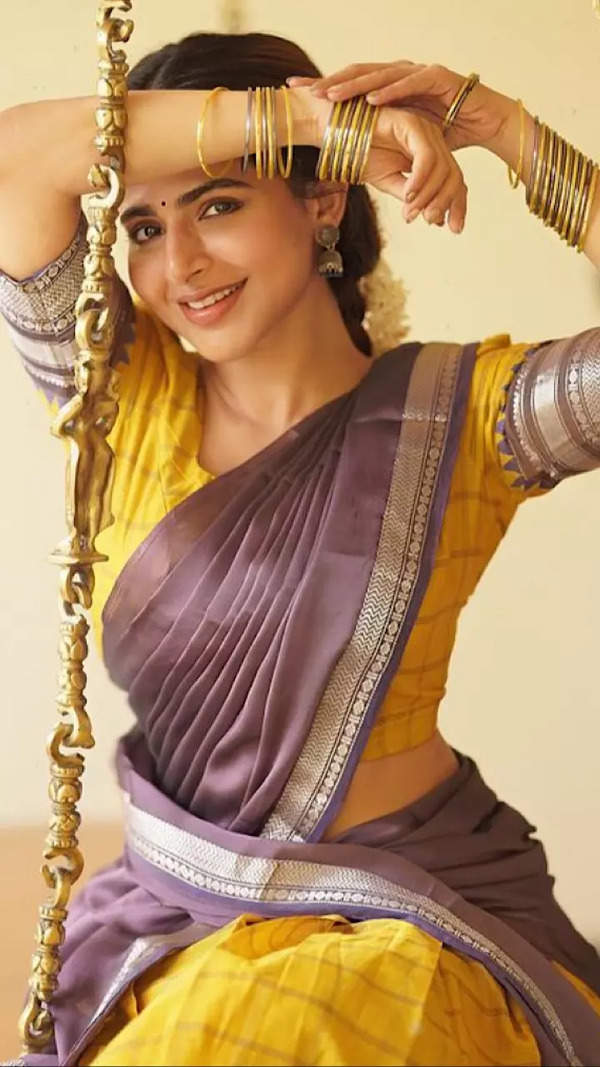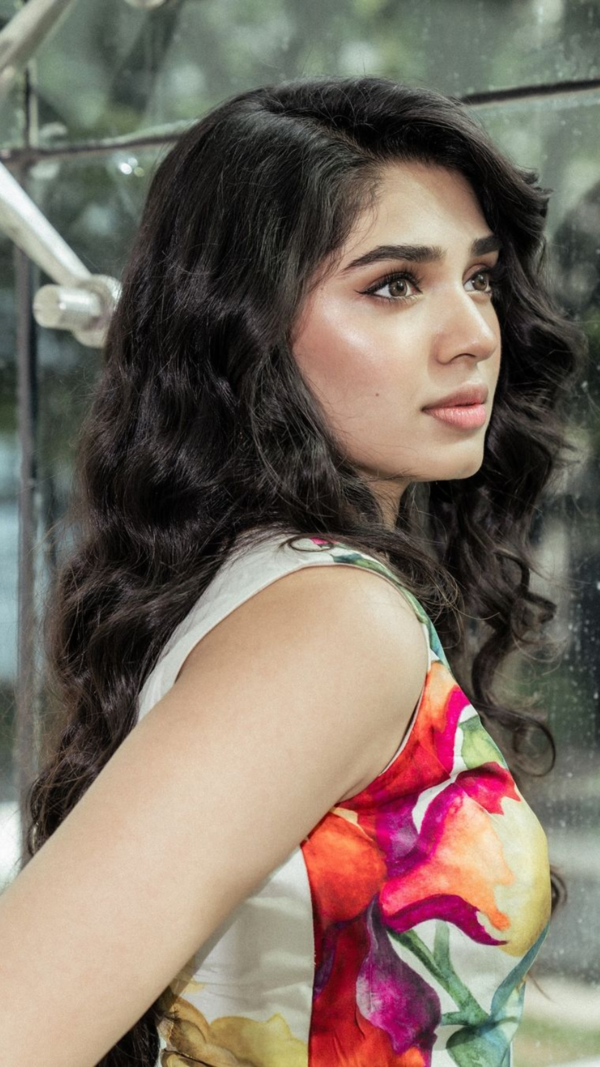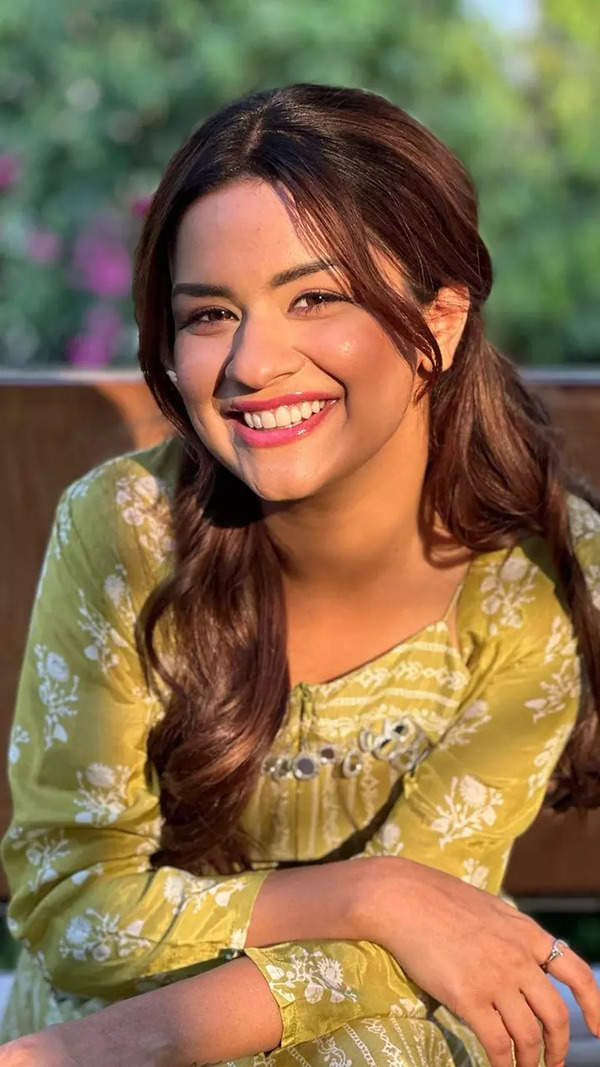- News
- entertainment
- tamil
- movies
- In the Tamil film industry, nepotism does not take you anywhere: Shanthnu
Trending
This story is from April 28, 2023
In the Tamil film industry, nepotism does not take you anywhere: Shanthnu
Actor Shanthnu Bhagyaraj is frank enough to admit that after a dream launch with Sakkarakatti, his career hasn’t taken off the way people expected it to.
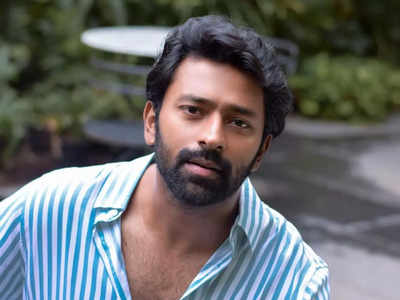
Actor Shanthnu Bhagyaraj is frank enough to admit that after a dream launch with Sakkarakatti, his career hasn’t taken off the way people expected it to. Now, 15 years and a lot of life lessons later, the young actor believes he’s ready to fight back and make his way up. In an interview with us, he opens up on his new film, coping with depression, how Paava Kadhaigal changed his outlook as an actor and why nepotism doesn’t work in Tamil cinema.Excerpts:
After Sakkarakatti, Raavana Kottam seems to be a film starring you that’s generating buzz. What’s different this time?
Firstly, it’s from Vikram Sugumaran, the director of Madhayaanai Koottam. I haven’t worked yet with a raw and realistic filmmaker like him. This one is rooted to the culture, and is set in the deep south that’s Ramanathapuram. The other reason is my producer Kannan Ravi uncle, a family friend, who wanted this film to be a grand one that gets me noticed and stands out in my career.
Have you changed your approach as an actor?
So, what kind of an actor were you before?
I used to approach a film just as an actor. I was also immature. Initially, I blindly picked films. It was only after doing Paava Kadhaigal did I realise what a character is, what expectations I should have from a film, how I should set my career, and so on. During the initial days, my dad used to listen to the scripts. But he decided to let me make my own decisions after there were baseless accusations that he was instrumental in me losing out on films like Subramaniapuram and Kalavaani. I used to commit to a film just because the idea felt different. Now, I’ve even started looking at a film from the eyes of a producer.
When did you decide to become an actor? Was it even before Sakkarakatti?
Right during Vettiya Madichu Kattu. That film happened by accident. Dad was auditioning a lot of boys my age for a role in his film. One day, I’d come back from school and done something thuru thuru, and my parents felt I’d be right for the role. Even during the shoot, I just did what dad wanted me to do. But I started liking that whole experience... the idea of having your face on a poster, the food at shoots, everyone wishing me good morning, and such stuff that would be exciting for a kid. So, I started telling my parents that I wanted to become an actor, but they were very particular that I finish my studies.
Did you prep to become an actor even while studying?
Actually, I started learning dance first. I was a big fan of the song Annatha Aadurar and used to dance to it whenever it played on TV. I’d even got a tiger suit stitched for me, and forced my parents to take me to AVM Studios so that I could dance in front of Kamal sir! But dad was impressed and took me to Jayanthi master, who’s now my mother-in-law, to learn dance professionally. Later on, when I was in Class 10 or 11, Shankar sir had approached dad wanting to cast me in Boys. However, after seeing my photos, he felt I looked too young. Post that offer, dad realised people were only going to approach him more and more, and got me to learn stunts from Pandian master. Later, when I was about to join college, I acted in a play by Mu Ramasamy. Actors Aadhi and Aari, too, were part of it. All three of us trained at Koothuppattarai for about twomonths and acted in a drama titled Galileo. I also learnt acting from my friend’s father, Kaladhar. I did these on my own interest. And just as I was about to finish college, Sakkarakatti came my way. It was a ‘Kanna rendu laddu thinna aasaiya’ moment for me, with a big producer like Thanu sir backing it and AR Rahman sir scoring th music. My dad felt the story lacked depth, but my mom and I pushed ahead, fearing a request to improve the script might make them look for someone else. That film exposed me to criticism.
In what way?
When the film began, I was in the clouds because everyone was projecting me as the next big thing. But it didn’t do well. And three to four top producers who had given me an advance for their next films backed out. Randeep Hooda had said in an interview that when he got into cinema, he thought people would scream out his name and flock into theatres, but realised luck and timing play a huge role in an actor becoming a star. ‘Showcase your talent where a hundredeyes will watch you,’ he had advised. Such insights taught me a lot. I still believe that Sakkarakatti was a huge launchpad for me. But the films I did after that were all on a smaller scale, and largely went unnoticed. It was finally one song, Damukatlam Damukatlam, that took me again to the people. That was because it was choreographed by Prabhudheva sir. That’s when I realised the truth behind Randeep Hooda’s words. Then, Paava Kadhaigal proved this. So, landing yourself in the right project is essential.
You’ve spoken about having been in a depressive space when your career was not going the way you wanted it to. How did you handle this period and come out of it?
I don’t think I’m out of it yet, but I also don’t think I’m depressed these days. I’m in a fighting stage now, forcing myself to look at things positively. That was not the case five or six years ago. I used to cry a lot, shut myself out and stay at home. My family and friends pulled me out of it. Cricket was another thing that helped me a lot. I used to look forward to the celebrity cricket tournament and started training in cricket, and this took me out of my worries. In fact, actors like Vishnu Vishal and Vikranth, too, have spoken about this. They had also been in the same state as me, and cricket became something we could all look forward to. Then, slowly, as projects started coming my way, I began to pull myself out of my depressive state. I still haven’t break, and I know that my journey is going to be difficult, but I’m ready to fight. The only thing I’d like to tell struggling actors like me is to never give up. I strongly believe that as long as you are sincere in your work, cinema will never let go of you. The latest example for this is Arun Vijay. Even in the years when no one approached him, he continued to be dedicated to his craft, maintaining his fitness and honing his skills. And both cinema and the public did not let goof him. Vikram sir had to wait till he was 40 to become a star. Even Vijay anna, despite being a director’s son, had to face failures before finding success. They all gave their 100 per cent to cinema and we see where they are today. So, you sincerely keep giving your all to cinema and one day, it will definitely give it back to you.
In the last few years, nepotism has become a huge talking point. Do you think audiences, too, have a say in someone becoming a star?
Definitely. If a very fair-skinned actor portrays a rooted rural character, the audience will never accept him as one. You will have to do things that suit you, and play characters that people will like. Take Dhanush and the kind of criticisms that he had to face because of his unconventional looks. But after a point, people started liking him for the characters he was playing. Right from Thulluvatho Ilamai, Kadhal Konden and Thiruda Thirudi, he did characters that suited him, gave good performances, and that attracted people. And once people accept you, they soon start loving you. This is why I always say that I want to become an actor. Because, it is the audiences who make you a star. Once people accept you as an actor, they will make you a star.
After Sakkarakatti, Raavana Kottam seems to be a film starring you that’s generating buzz. What’s different this time?
Firstly, it’s from Vikram Sugumaran, the director of Madhayaanai Koottam. I haven’t worked yet with a raw and realistic filmmaker like him. This one is rooted to the culture, and is set in the deep south that’s Ramanathapuram. The other reason is my producer Kannan Ravi uncle, a family friend, who wanted this film to be a grand one that gets me noticed and stands out in my career.
Have you changed your approach as an actor?
You’ll see a new Shanthnu. I’ve never experienced the lifestyle and culture that we’ve captured in this film. Vikram wanted me to get accustomed to the place’s lifestyle, the people’s body language and dialect and develop a tan that’s natural to the region. So, 10 days before the shoot, he took me there and made me walk on the roads there wearing a kaili and a banian, without any footwear, every day. In the films I’ve done so far, I think I have never become a character 100 per cent until now. There was always some bit of
Shanthnu in my previous characters, but here, people only will see the character Senguttuvan.
So, what kind of an actor were you before?
I used to approach a film just as an actor. I was also immature. Initially, I blindly picked films. It was only after doing Paava Kadhaigal did I realise what a character is, what expectations I should have from a film, how I should set my career, and so on. During the initial days, my dad used to listen to the scripts. But he decided to let me make my own decisions after there were baseless accusations that he was instrumental in me losing out on films like Subramaniapuram and Kalavaani. I used to commit to a film just because the idea felt different. Now, I’ve even started looking at a film from the eyes of a producer.
When did you decide to become an actor? Was it even before Sakkarakatti?
Right during Vettiya Madichu Kattu. That film happened by accident. Dad was auditioning a lot of boys my age for a role in his film. One day, I’d come back from school and done something thuru thuru, and my parents felt I’d be right for the role. Even during the shoot, I just did what dad wanted me to do. But I started liking that whole experience... the idea of having your face on a poster, the food at shoots, everyone wishing me good morning, and such stuff that would be exciting for a kid. So, I started telling my parents that I wanted to become an actor, but they were very particular that I finish my studies.
Did you prep to become an actor even while studying?
Actually, I started learning dance first. I was a big fan of the song Annatha Aadurar and used to dance to it whenever it played on TV. I’d even got a tiger suit stitched for me, and forced my parents to take me to AVM Studios so that I could dance in front of Kamal sir! But dad was impressed and took me to Jayanthi master, who’s now my mother-in-law, to learn dance professionally. Later on, when I was in Class 10 or 11, Shankar sir had approached dad wanting to cast me in Boys. However, after seeing my photos, he felt I looked too young. Post that offer, dad realised people were only going to approach him more and more, and got me to learn stunts from Pandian master. Later, when I was about to join college, I acted in a play by Mu Ramasamy. Actors Aadhi and Aari, too, were part of it. All three of us trained at Koothuppattarai for about twomonths and acted in a drama titled Galileo. I also learnt acting from my friend’s father, Kaladhar. I did these on my own interest. And just as I was about to finish college, Sakkarakatti came my way. It was a ‘Kanna rendu laddu thinna aasaiya’ moment for me, with a big producer like Thanu sir backing it and AR Rahman sir scoring th music. My dad felt the story lacked depth, but my mom and I pushed ahead, fearing a request to improve the script might make them look for someone else. That film exposed me to criticism.
In what way?
When the film began, I was in the clouds because everyone was projecting me as the next big thing. But it didn’t do well. And three to four top producers who had given me an advance for their next films backed out. Randeep Hooda had said in an interview that when he got into cinema, he thought people would scream out his name and flock into theatres, but realised luck and timing play a huge role in an actor becoming a star. ‘Showcase your talent where a hundredeyes will watch you,’ he had advised. Such insights taught me a lot. I still believe that Sakkarakatti was a huge launchpad for me. But the films I did after that were all on a smaller scale, and largely went unnoticed. It was finally one song, Damukatlam Damukatlam, that took me again to the people. That was because it was choreographed by Prabhudheva sir. That’s when I realised the truth behind Randeep Hooda’s words. Then, Paava Kadhaigal proved this. So, landing yourself in the right project is essential.
You’ve spoken about having been in a depressive space when your career was not going the way you wanted it to. How did you handle this period and come out of it?
I don’t think I’m out of it yet, but I also don’t think I’m depressed these days. I’m in a fighting stage now, forcing myself to look at things positively. That was not the case five or six years ago. I used to cry a lot, shut myself out and stay at home. My family and friends pulled me out of it. Cricket was another thing that helped me a lot. I used to look forward to the celebrity cricket tournament and started training in cricket, and this took me out of my worries. In fact, actors like Vishnu Vishal and Vikranth, too, have spoken about this. They had also been in the same state as me, and cricket became something we could all look forward to. Then, slowly, as projects started coming my way, I began to pull myself out of my depressive state. I still haven’t break, and I know that my journey is going to be difficult, but I’m ready to fight. The only thing I’d like to tell struggling actors like me is to never give up. I strongly believe that as long as you are sincere in your work, cinema will never let go of you. The latest example for this is Arun Vijay. Even in the years when no one approached him, he continued to be dedicated to his craft, maintaining his fitness and honing his skills. And both cinema and the public did not let goof him. Vikram sir had to wait till he was 40 to become a star. Even Vijay anna, despite being a director’s son, had to face failures before finding success. They all gave their 100 per cent to cinema and we see where they are today. So, you sincerely keep giving your all to cinema and one day, it will definitely give it back to you.
In the last few years, nepotism has become a huge talking point. Do you think audiences, too, have a say in someone becoming a star?
Definitely. If a very fair-skinned actor portrays a rooted rural character, the audience will never accept him as one. You will have to do things that suit you, and play characters that people will like. Take Dhanush and the kind of criticisms that he had to face because of his unconventional looks. But after a point, people started liking him for the characters he was playing. Right from Thulluvatho Ilamai, Kadhal Konden and Thiruda Thirudi, he did characters that suited him, gave good performances, and that attracted people. And once people accept you, they soon start loving you. This is why I always say that I want to become an actor. Because, it is the audiences who make you a star. Once people accept you as an actor, they will make you a star.
End of Article
FOLLOW US ON SOCIAL MEDIA
